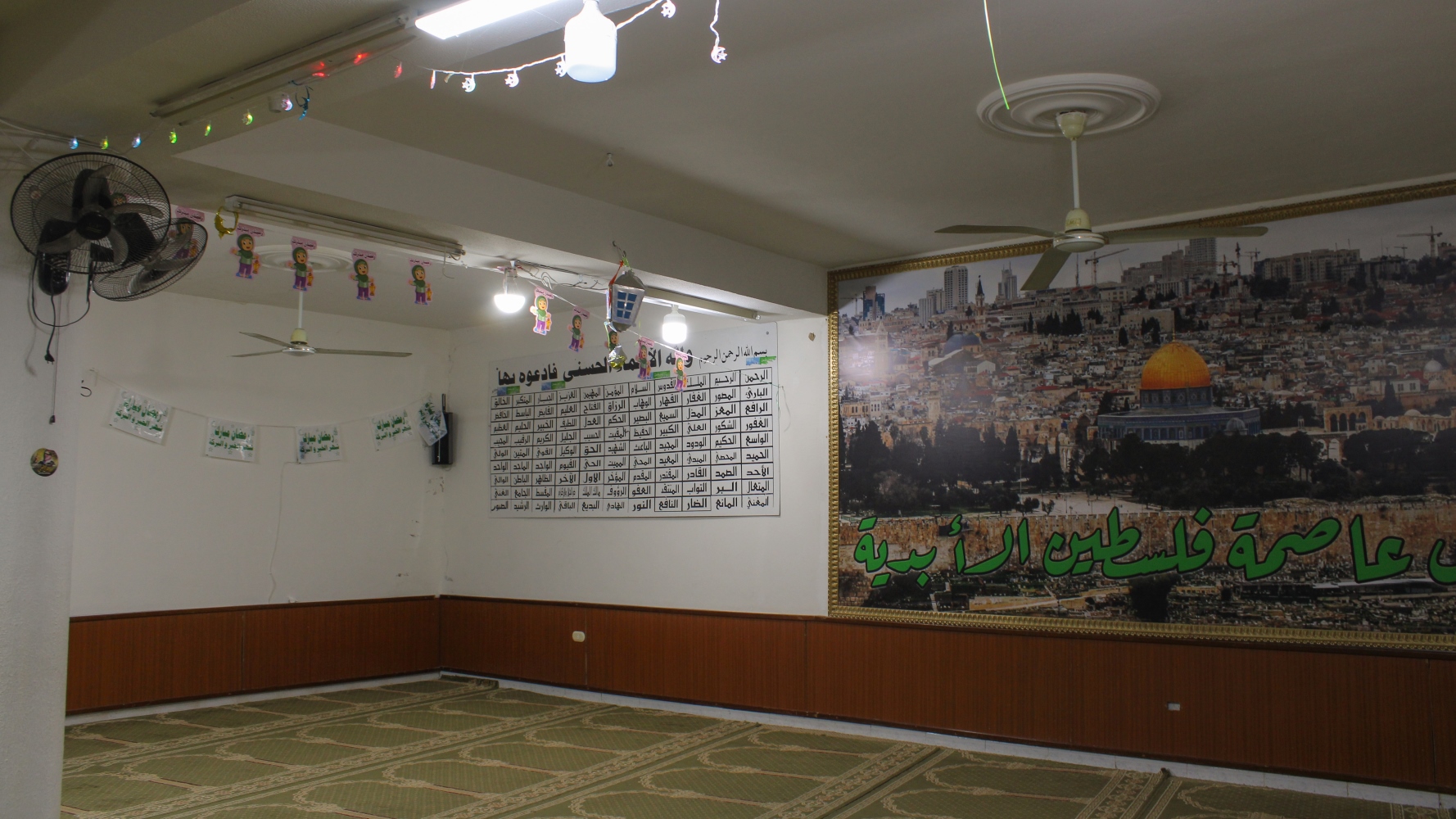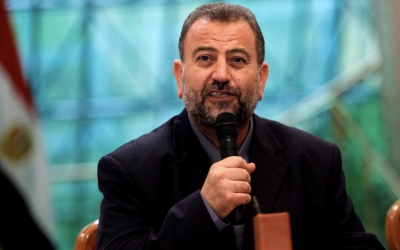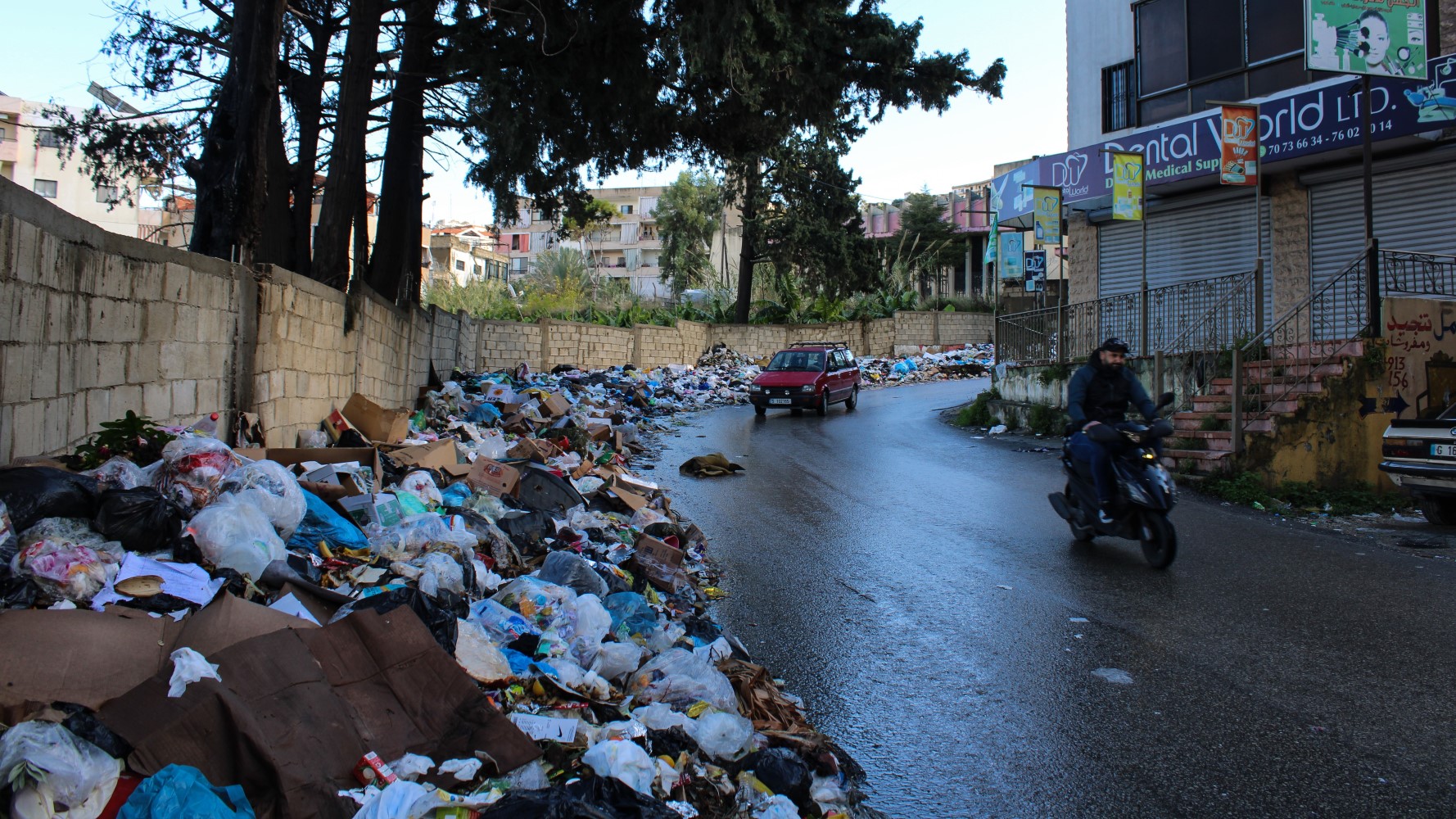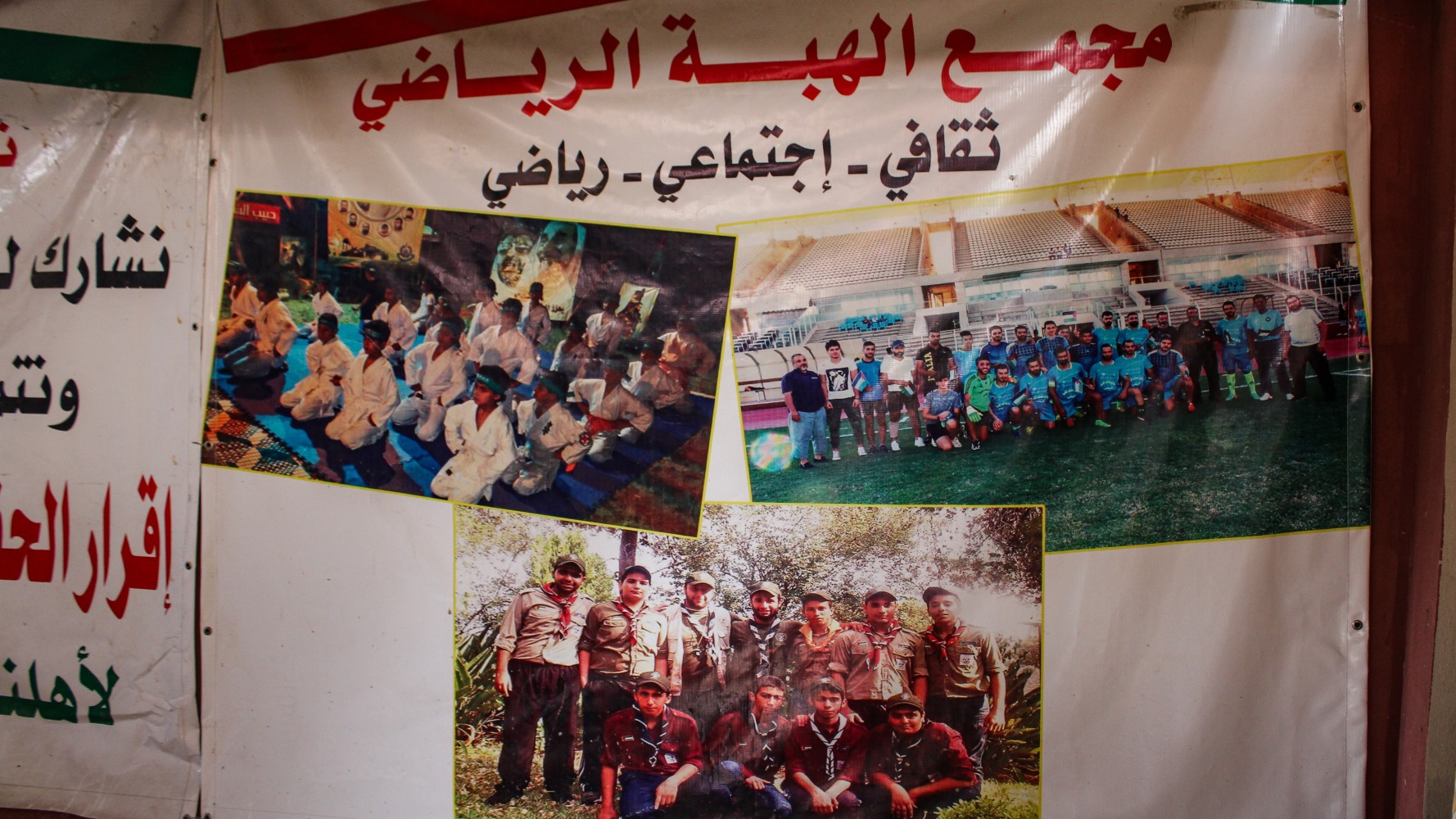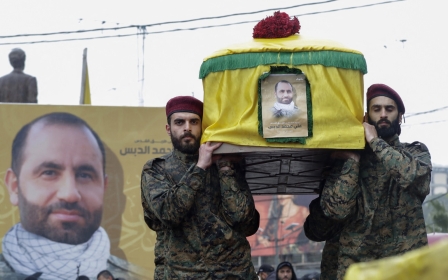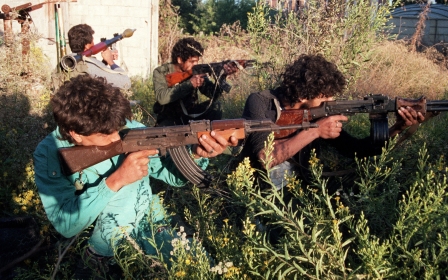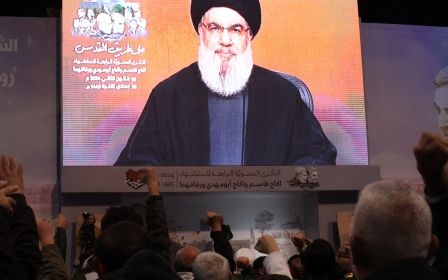Lebanon: Hamas fills a public service void for Palestinian communities
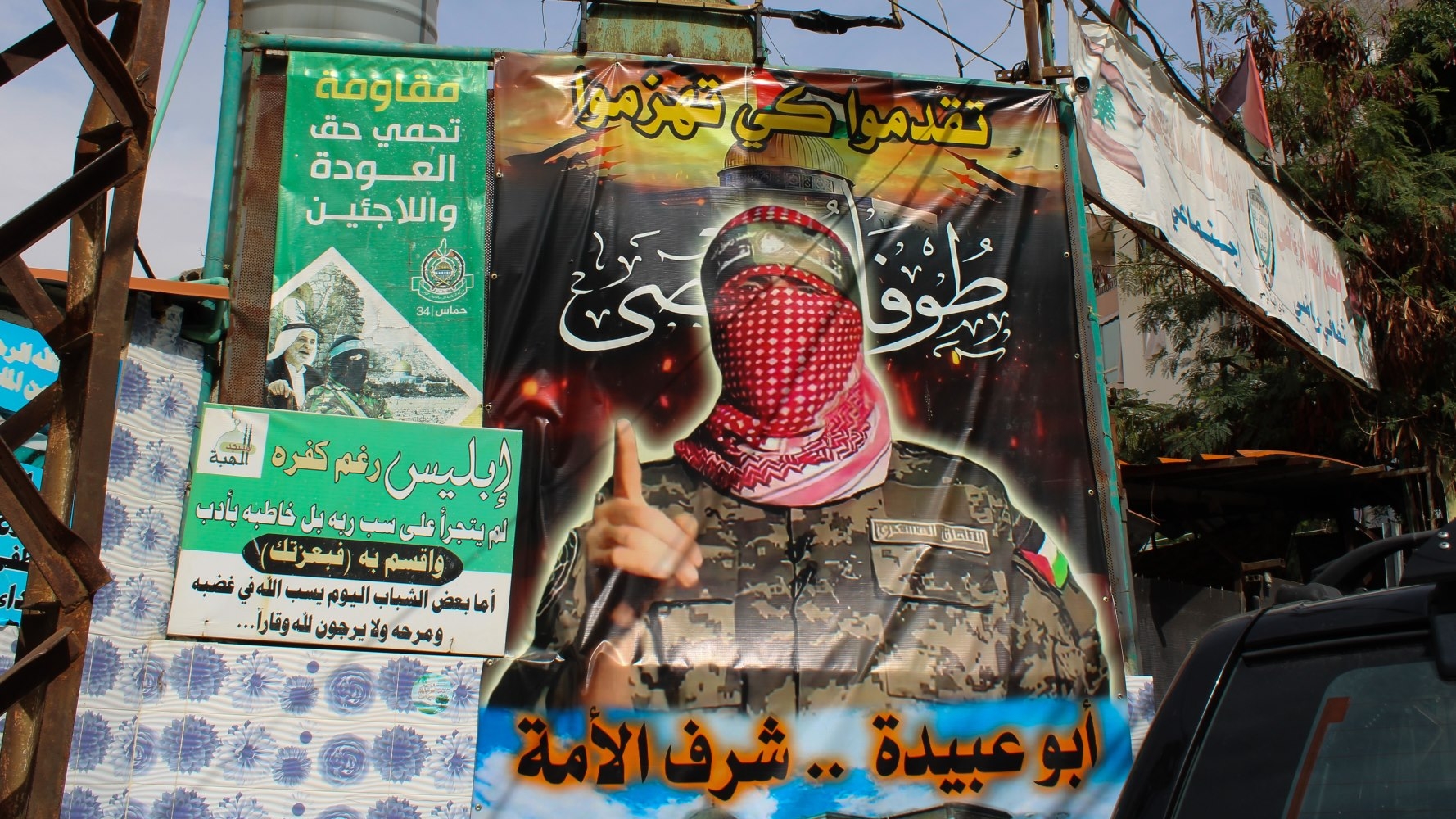
A small neighbourhood in the southern Lebanese city of Sidon, also known as Saida, is a utopia when compared to the communities surrounding it.
The neighbourhood’s nearly 3,000 residents, most of whom are Palestinian, have access to a broad array of amenities now seldom seen in Lebanon, a country where public services have mostly dried up after years of economic crisis.
Credit for the services in this Palestinian community goes to the armed group and political movement, Hamas.
Residents can fill up gallons of fresh drinking water four days a week. The streets are clean and well-lit at night. The community’s youth even have access to a recreation centre, equipped with football tables, punching bags, and a treadmill they can use free of charge.
Lebanon’s economic meltdown has hit Palestinian refugees in the country especially hard.
New MEE newsletter: Jerusalem Dispatch
Sign up to get the latest insights and analysis on Israel-Palestine, alongside Turkey Unpacked and other MEE newsletters
Before the crisis, the community faced systemic discrimination and legal barriers that left them unable to escape poverty. So, the help from Hamas is welcomed with open arms.
The movement has historically done well to provide basic social services on a small budget.
Their social welfare networks in Gaza and the West Bank were a huge contributor to their election victory in Palestine in 2006. In Lebanon, Hamas’s popularity is now surging as the group fights the Israeli army in Gaza.
“We continue to serve our people with what we have and what we can do,” said a local Hamas leader in Sidon, who goes by the nom de guerre Abu Abed Shanaa.
“We will do anything that could benefit (the) Palestinian people,” the 53-year-old told Middle East Eye from an old parking garage in the neighbourhood, which he helped transform into a mosque.
The mosque has become a bustling community centre for the small Sidon community, holding regular prayers, youth programmes, and even weddings for those unable to afford a venue elsewhere.
As Abu Shanaa spoke to Middle East Eye during the Muslim holy month of Ramadan, residents of the neighbourhood flowed in and out of the mosque.
One boy entered to attend an Islamic education class, ongoing in an adjacent room. Another man came to ask Abu Shanaa when Ramadan food packages would be ready.
Hamas, like other Palestinian parties in Lebanon, distributes monetary and food handouts during the Muslim holy month, although this year Abu Shanaa said the Ramadan handouts are smaller, with Hamas embroiled in the fight in Gaza.
On top of collecting food packages for Ramadan, Abu Shanaa coordinates summer camps and athletic teams, runs fundraisers for those who are ill and who recently gave birth, and resolves disputes between families.
He has also organised multiple community infrastructure projects, all of which he said have helped draw “families closer” to the Hamas movement.
Trust building
A minute’s drive from the Hamas-run neighbourhood is a Christian village. Abu Shanaa said the key to building trust for the group’s presence in the area was cooperation with their Christian neighbours and the Lebanese municipality.
The brunt of criticism over the presence of Palestinian militant groups on Lebanese soil has historically come from the country’s Christian communities and parties.
In a poll by the Washington Institute following the 7 October Hamas attack, 79 percent of Lebanese people generally expressed a positive opinion of Hamas, but amongst Christians, the majority was smaller at 59 percent.
Abu Shanaa moved to the neighbourhood in 2000 and he said at the time water was only flowing about once every two weeks. There were no street lights and the roads were full of potholes.
He had previously been living in Ain al-Hilweh in Sidon, the country’s largest refugee camp for Palestinians. When Abu Shanaa’s father was a child, he fled their village in Akka, northern Palestine, after it came under attack by Israeli forces in 1948.
Unwra estimates that around 250,000 Palestinian refugees reside in Lebanon. Although many have been living in the country for over 75 years, they are still denied access to basic entitlements, like owning a property.
Soon after Abu Shanaa arrived in the neighbourhood, he contacted the Sidon municipality and formed a committee with “all sects and parties”, both Lebanese and Palestinian, to break ground on the infrastructure projects.
They started by digging drinking water wells, which cost around $5,000 in total. Hamas donated $2,000, according to Abu Shanaa. Next, they repaired the roads and installed street lights.
“The mayor was very happy with our work,” Abu Shanaa said. “Our efforts made families and the Lebanese [security] forces and municipality appreciate us more because things became more organised,” he added.
A few years later, around 2004, Abu Shanaa organised a project to build a pavement leading down to the neighbourhood: funded 80 per cent by Hamas and 20 percent by the municipality.
Then in 2009, Abu Shanaa contacted a Lebanese Christian who owned an unused stretch of land in the area, who permitted him to turn it into a football field. Hamas contributed $11,000, Abu Shanna said.
With the space to engage in healthy activities and take part in community programmes, the rates of drug and alcohol abuse declined among the youth, Abu Shanaa said. “We helped establish order,” he added. “People accepted us and respected us more.”
Hamas has since coordinated a variety of projects and programmes for the neighbourhood. Abu Shanaa also noted that there are many other communities Hamas supports in Lebanon, similar to the one in Sidon.
Hamas grows in Lebanon
Although Hamas was present in Lebanon in the 1990s, many considered it a “fringe group” compared to the more dominant Palestinian political actors like Fatah, said Mohanad Hage Ali, a Beirut-based fellow at the Carnegie Middle East Center.
Hamas’s Lebanese branches were at first not focused on militancy, Hage Ali told Middle East Eye. It wasn’t until 2017, when Hamas reconciled its ties with Hezbollah following a schism over the civil war in Syria, that the group transitioned to a more militant focus and began to notably expand in the country, Hage Ali added.
Following the 2019 financial crash and the “slow death of the Lebanese state” amidst the economic crisis, Hamas saw an opportunity to grow further in the Palestinian camps and to initiate military activities that were not previously possible, Hage Ali said.
Since 7 October, the Hamas military wing, al-Qassam Brigades, has carried out multiple attacks on Israel from Lebanese soil. The militant group also operates an extensive recruitment and training network from Lebanon.
'We are so proud of Hamas right now. I’m so proud of what they’re doing to fight [Israel’s] genocide in Gaza'
- Malak, Ain al-Hilweh resident
Now, the group’s wartime popularity is allowing them to recruit at “unprecedented levels” in Lebanon, aided by a relatively substantial flow of funding, likely from Iran, Hage Ali noted.
“Hamas is a lot more popular,” said 26-year-old Malak al-Ali, who lives in Ain al-Hilweh camp.
“We are so proud of Hamas right now,” she said. “I’m so proud of what they’re doing to fight [Israel’s] genocide in Gaza.”
Hamas’s rising popularity has threatened the long-held dominance of Fatah, their political adversary.
In recent years, Fatah, whose strategy towards Israel mostly follows the path of negotiations, rather than armed struggle, has been weakened by the failure of the Israel-Palestine peace process to bring about any real achievements.
Hamas is also viewed as more generous, compared to Fatah, regarding its aid provision.
Fatah is known to distribute aid just to party members in Sidon, whereas Hamas offers handouts to all who need help, Ain al-Hilweh residents confirmed to Middle East Eye.
Malak said she feels Hamas is the most honest Palestinian political faction: “Hamas helps everyone, while others steal more than they help.”
Malak has two young children, seven and eight years old, who are enrolled in the Unrwa-run schools in the camp.
She said that the schools are overcrowded and the quality of education is poor, with Unrwa and with other humanitarian groups often short on funding.
'Despite everything happening, Hamas is still steady and standing with its people. We will never give up on our people'
- Abu Abed Shanaa, Hamas leader in Sinweh
“I don’t see them [humanitarian agencies] helping a lot. They can’t help everyone,” Malak said.
Following so-far unfounded Israeli allegations that multiple Unrwa staff members were involved in the 7 October Hamas attack, major donors of the UN agency withdrew their funding, leaving the already cash-strapped agency’s survival in question.
An end to Unrwa’s services could open more space for Hamas to fill the need gap.
“Unrwa is supposed to take care of all the services for Palestinians, but it has been hindered by the Zionists' interests around the world to drop the Palestinian issue,” Abu Shanaa said.
Meanwhile, he said, “Despite everything happening, Hamas is still steady and standing with its people. We will never give up on our people.”
Abu Shanaa said he still has the deed for his land in Palestine, which he will continue to hold onto until his family can return. “The land is ours and we have the right to it. People came and stole our houses. We want our homes, give them back to us,” he said.
This article is available in French on Middle East Eye French edition.
Middle East Eye delivers independent and unrivalled coverage and analysis of the Middle East, North Africa and beyond. To learn more about republishing this content and the associated fees, please fill out this form. More about MEE can be found here.


